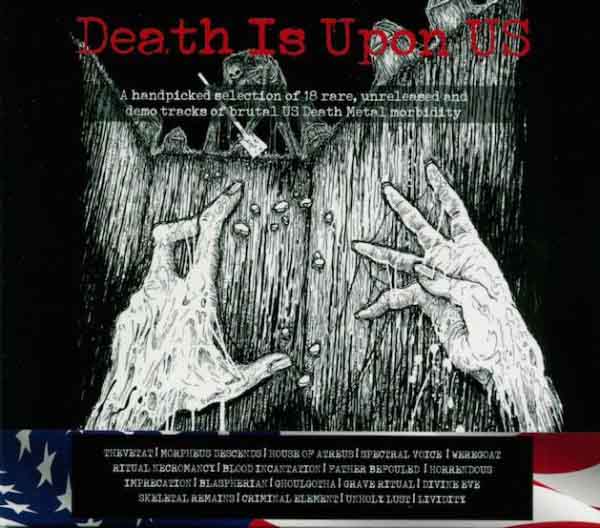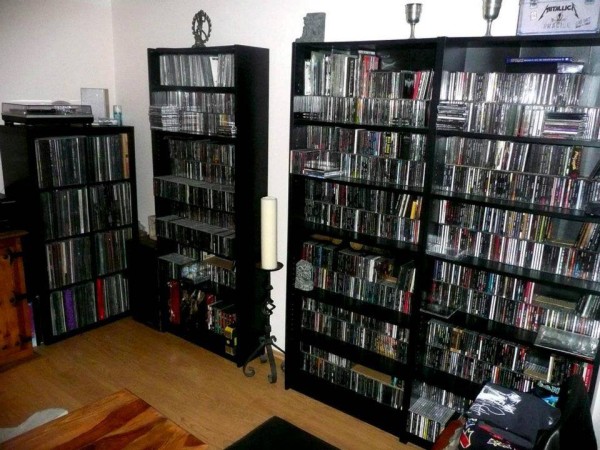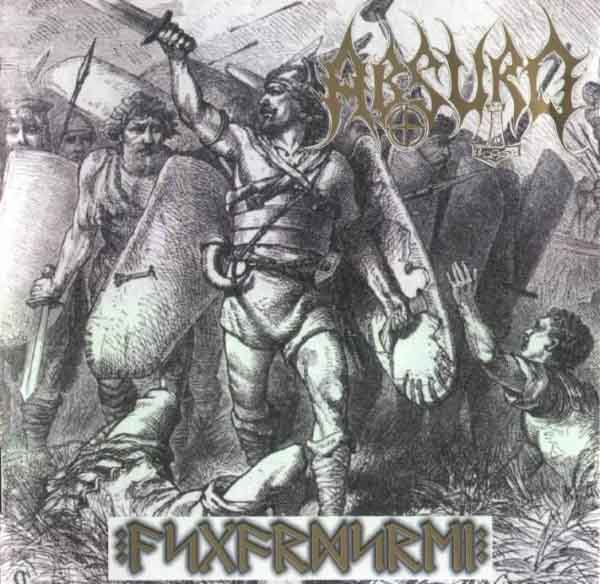
From a recent interview with our editor:
You and the other reviewers are notorious for having incredibly harsh reviews. What would you say are your favorite metal albums of all time?
These metal albums have stayed in weekly rotation over the years:
- Massacra – Final Holocaust
- Slayer – Show No Mercy
- Incantation – Onward to Golgotha
- Sepultura – Morbid Visions/Bestial Devastation
- Deicide – Legion
- Beherit – Drawing Down the Moon
- Cianide – A Descent Into Hell
- Atheist – Unquestionable Presence
- Demilich – Nespithe
- Demoncy – Joined in Darkness
The reason my analysis is different than that of other metal sites is that populist writers prioritize surface novelty and underlying similarity to mainstream rock, where I look at metal as a form of art in its own right. It should be measured by the quality of its internal organization and ability to artistically represent a vision of power. The popular “best of” lists specialize in bands that will be forgotten in a few years because when the novelty is gone, they are the same old stuff you could get anywhere else.
I keep a copy of Sepultura Morbid Visions/Bestial Devastation in every room in the house. I dislike being too far from one at any given time.
What contemporary bands should we be paying attention to?
In music as in all things, I am an elitist. This means that I want the best music available because time is short and there is no point wasting it on the trivial. Keep an eye on Demoncy, Sammath, Blaspherian, Kjeld, Desecresy, Kaeck, Blood Urn, and Kever.
Some accuse your site of manufacturing a controversy with MetalGate but the SJW infiltration of political correctness in metal has technically been going on since the late 90s. Do you think metal can actually be tamed by leftists and what is your perspective on the attempts to make metal safe?
SJWs are incapable of understanding the aesthetics of metal, which is why all leftist music tends to be metal-flavored riffing wrapped around rock or punk. Metal music sounds the way it does because its outward form represents what its composers wish to communicate. Ignoring lyrics and imagery, which are entirely secondary to composition much as production is, the music itself conveys an abstract and distant sound that makes beauty out of ugliness through a respect for power. In metal, what is powerful creates excellence, and from within that comes the elegance of form and portrayal of reality that makes great art.
Rock takes the opposite view. It is basically intense repetition with an ironic twist at the end, which means that it differentiates itself through “message.” People love catchy lyrics that embody some idea they find appealing at the time, but these are always experiences based in the individual, which is why almost all of rock music is love songs or “protest music” that wails about how inconvenient it is that some complex idea stands between the individual and a good time. You cannot both be pro-nationalist and listen to rock music.
Metal came about when Black Sabbath wanted to interrupt the hippies — what they called SJWs back when they opposed The Establishment — with some “heavy” (hippie slang for intense, epic and terrifying) realism. The West was falling apart, and the popular movements insisted that if we just focused on peace, love and happiness, all our problems would magically vanish. This focus on reality makes metal appear right-wing to leftists. It embraces consequentialism, worship of the ancient, distrust of the narcissism in the individual, and the idea of conflict itself, so that those who are strongest win. This inherently clashes with the individualist groupthink of the left, which seeks to avoid conflict and manage people indirectly through guilt.
When SJWs make metal, it ends up sounding like punk rock or rock because those forms of “protest music” reflect the individualist and yet group-oriented mentality of the SJW. Like the Christians with their “white metal” in the 1980s and the many times commercial record labels have tried to launch rock bands disguised as metal to capture the metal audience, social justice workers (SJWs) are trying to force entry by liberal ideas into metal so they can take over the space of culture that it dominates, and its audience, and indoctrinate them in leftism. Both media and labels support this because it is cheaper to make rock bands than metal bands.
Metalgate rose to resist this conspiracy and call it what it is, which is an attempt to control our minds through propaganda in music, as well as a gambit to replace what we know of as metal with a “safe” version based in indie rock. Most people do not know it, but metal generates a lot of income because metal fans are loyal to the genre over the course of their lives. Record labels could make a lot of money if they could sell the same old pap with metal flavoring. Luckily metalheads are resisting as they have resisted every attempt to assimilate their genre into rock ‘n roll, break its spirit and make it repeat the same dogma that exists in every other genre of music.
8 CommentsTags: atheist, beherit, blaspherian, blood urn, cianide, comicgate, Deicide, Demilich, demoncy, desecresy, gamergate, incantation, kaeck, kever, kjeld, massacra, metalgate, sammath, scifigate, sepultura, sjws, slayer











